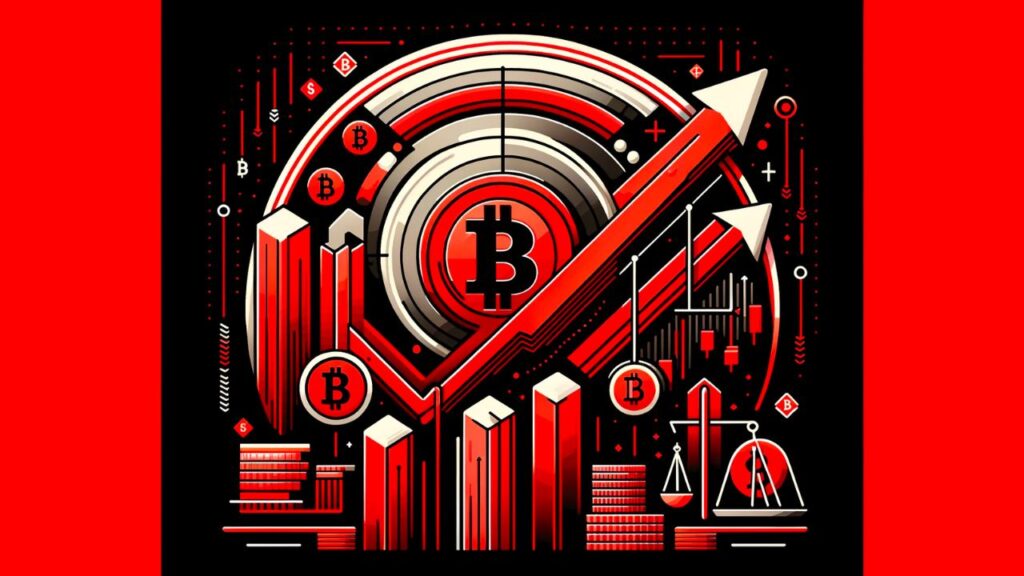
TL;DR
Bitcoin is often viewed as a hedge against inflation, especially in the wake of central bank policies and economic stimuli such as those seen during the COVID-19 pandemic. While Bitcoin has characteristics that could make it inflation-resistant, such as a fixed supply limit and independence from any single economy or currency, it is not entirely immune to inflationary pressures. This article explores Bitcoin’s relationship with inflation, the economic implications of inflation, and how Bitcoin compares to traditional inflation hedges like gold.
Unpacking Bitcoin’s Relationship with Inflation
Bitcoin’s Role as an Inflation Hedge
Bitcoin’s fixed supply of 21 million coins positions it as a potential hedge against inflation. The theory is that as fiat currencies depreciate due to excessive money printing by central banks, assets with a limited supply, such as Bitcoin, will retain or increase in value. The COVID-19 pandemic, which led to significant monetary expansion worldwide, underscored Bitcoin’s appeal as its price surged over 250%, drawing attention from traditional investors.
Understanding Inflation Inflation reflects the decline in purchasing power of a currency, manifesting as a rise in consumer goods prices. Central banks, like the U.S. Federal Reserve with its 2% inflation target, monitor and adjust monetary policy to manage inflation levels. While moderate inflation is deemed beneficial for economic growth, excessive inflation or deflation can lead to economic instability.
The Persistent Nature of Inflation Recent trends suggest inflation may become a more permanent fixture in the global economy, driven by factors such as labor market imbalances and rising real estate prices. This enduring presence of inflation challenges the conventional wisdom that inflation is a transient economic phenomenon.
Bitcoin in the Inflation Equation Despite Bitcoin’s design for low inflation rates, its correlation with broader market movements has grown, particularly as institutional investment increases. This means Bitcoin’s value can diminish in times of monetary tightening, challenging its status as a pure inflation hedge.
Cryptocurrency Inflation Dynamics Even Bitcoin, known for its resistance to inflation, is subject to inflationary pressures as new coins are mined. However, its built-in mechanisms, such as halving events, are designed to reduce inflation rates over time.
Bitcoin: Inflationary or Deflationary?
Technically, Bitcoin is inflationary until it reaches its supply cap. Upon reaching this cap, Bitcoin’s monetary base will remain constant, transitioning to a disinflationary state.
The Case for Bitcoin as an Inflation Hedge Bitcoin’s advantages, including its limited supply and global demand, position it as a potentially superior hedge against inflation compared to traditional assets like gold.
The Importance of Inflation for Crypto High inflation rates can drive investment towards cryptocurrencies as a means to protect against fiat depreciation, highlighting the benefits of Bitcoin’s fixed supply.
Bitcoin’s Recession Resilience
Originating as a response to the 2008 financial crisis, Bitcoin’s decentralized nature offers a unique hedge against economic downturns, providing a secure and globally transferable store of value.
Bitcoin’s Long-Term Potential
While not poised to replace centralized currencies, Bitcoin’s blockchain technology has ushered in significant innovations in decentralized finance, offering a resilient alternative to traditional financial systems, especially for unbanked populations.
In closing, while Bitcoin presents a compelling case as an inflation-resistant asset, its performance is not isolated from broader economic trends and market dynamics. Its fixed supply and decentralized nature offer a semblance of security against inflationary pressures, yet it’s not immune to market fluctuations. As the landscape of digital currencies evolves, Bitcoin’s role in safeguarding economic value continues to provoke thought and discussion, embodying the spirit of independence and resilience that underpins the quest for a more decentralized and equitable financial system.
Thank you for reading “Bitcoin and Inflation: A Comprehensive Overview“.
- Subscribe to our newsletter: ConsensusProtocol.org
- Follow us on Twitter: @ConsensusPro
Sources:




